 You’ve got the glow of a mother-to-be. Keep it with these tips for better oral health for you and your baby.
You’ve got the glow of a mother-to-be. Keep it with these tips for better oral health for you and your baby.
Now you’re eating (and brushing, flossing and keeping dental appointments) for two.
- Make an appointment at the outset of your pregnancy for a healthy head start and advice on changes that could lead to dental problems. Hormonal changes can lead to diet changes, for a famous example, and morning sickness acids can threaten tooth enamel.
- Schedule non-emergency dental care for the fourth to sixth months, because a dental chair can be uncomfortable for a swollen body.
- Avoid dental X-rays and tetracycline, which can stain fetal teeth.
- Get a daily dose of calcium-laden foods like dairy products and dark green leafy vegetables, since your baby and your teeth both need them.
- Reduce the threat of tooth decay or gum disease by brushing and flossing about 30 minutes after every meal and snack. This is especially important now that research has suggested a link between mothers with periodontal disease, or infectious gum disease, and low birth weight babies. Other research suggests that women with untreated periodontal disease are more likely to give birth prematurely.

